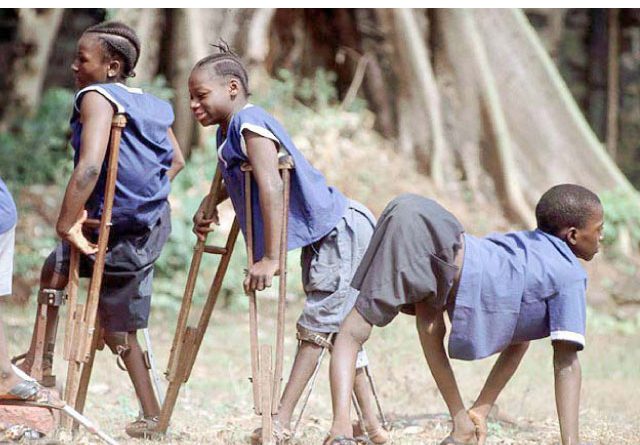WHO reports major decline in polio cases across Africa
The World Health Organisation (WHO) has reported a decline in the number of African countries with active type 2 poliovirus outbreaks, dropping from 24 to 14 between 2024 and 2025.
The WHO Regional Director for Africa, Mohamed Janabi, in a statement to mark the 2025 World Polio Day said the total virus detections also dropped by 54 per cent within the same period.
The World Polio Day, marked on 24 October annually provides an opportunity to highlight global efforts toward a polio-free world and honor the tireless contributions of those on the frontlines in the fight to eradicate polio from every corner of the globe
The theme for the 2025 World Polio Day “End Polio: Every Child, Every Vaccine, Everywhere,” is a call to ensure that no child, in any setting, is left unprotected.
Mr Janabi said countries in the region have continued to demonstrate resilience and innovation in the fight against the disease.
He noted that the progress achieved in 2025 reflects the impact of sustained political commitment, regional cooperation and investment in public health systems.
He emphasised that no child, regardless of location, should be left unprotected from this preventable disease.
Remarkable progress
Mr Janabi said Africa is making remarkable progress towards eradicating polio, with stronger cross-border collaboration, improved surveillance systems, and expanded immunisation campaigns reaching millions of children across the continent.
He noted that between January and October 2025, 15 African countries reached nearly 200 million children with at least one dose of the polio vaccine through supplementary immunisation rounds.
He said 13 of these countries conducted synchronised vaccination campaigns, including in high-risk and conflict-affected areas.
In the Horn of Africa, Djibouti, Ethiopia, Kenya and Somalia jointly vaccinated more than 18 million children in two consecutive rounds, a milestone WHO described as evidence of effective regional collaboration.
He said in April 2025, Health Ministers inaugurated a campaign to vaccinate 83 million children in the sub-region, contributing to significant reductions in poliovirus outbreaks and detection rates.
He added that by October 2025, two countries reported type 1 cases, 14 reported type 2, and three reported type 3 poliovirus cases, reflecting continued challenges and progress across Africa.
Mr Janabi added that in May, Madagascar officially declared the end of its circulating variant poliovirus type 1 outbreak after comprehensive response measures and sustained surveillance.
Stronger laboratories, digital innovation driving progress
Mr Janabi said progress across the continent is being reinforced by stronger health systems and laboratory capacity.
He said by mid-2025, 11 WHO-supported laboratories had expanded genomic sequencing capabilities, while six began piloting advanced detection techniques.
He also said Uganda’s Sanger sequencing facility, accredited earlier this year, has improved regional capacity for variant tracking.
The Regional Director added that environmental surveillance has also expanded significantly, with 98 per cent of countries in the WHO African Region now monitoring wastewater and sewage for polioviruses, providing early warnings of potential transmission.
He also highlighted how digital innovation is transforming operations.
“Over 850,000 frontline health workers now receive digital payments via mobile-money platforms, with 95 per cent paid within 10 days of completing campaigns,” he said.
“Geospatial mapping by the WHO Africa GIS Centre has further helped countries locate and reach children in remote and nomadic populations that were previously missed.”
Challenges remain
Despite these gains, Mr Janabi warned that the last mile of eradication remains the hardest.
He said declining routine immunisation coverage, insecurity, vaccine hesitancy, and campaign interruptions continue to pose risks to the progress made.
“To truly end polio, countries must sustain cross-border coordination, reach zero-dose and under-immunised children, expand surveillance and sequencing capacity, and maintain high-quality outbreak response,” he said.
Mr Janabi stressed that ending polio in Africa is about more than halting transmission.
READ ALSO: WHO appoints new representative to Nigeria
As the continent moves closer to a polio-free future, WHO urged governments, donors and communities to sustain commitment, funding, and coordinated action.
Polio
Polio, or poliomyelitis, is a highly infectious viral disease that mainly affects children under the age of five.
The virus spreads primarily through contaminated water or food and can invade the nervous system, causing paralysis, and in severe cases, death. Although there is no cure, the disease can be prevented through safe and effective vaccination.

